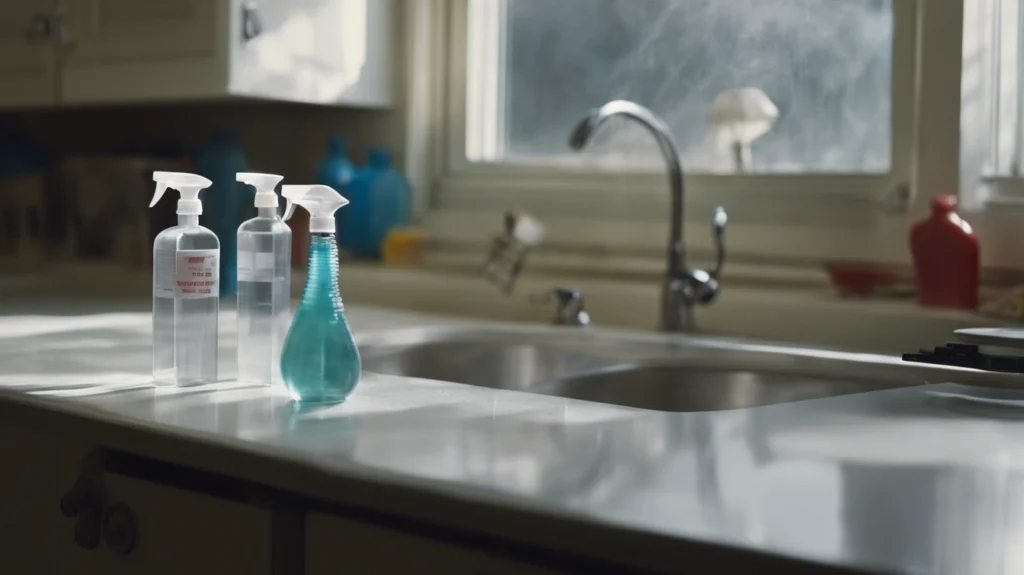How Everyday Pollutants Could Be Damaging Your Liver

Let’s talk about some of the main environmental pollutants that could be impacting your liver and raising the risk of liver cancer:
1. Air Pollution & Particulate Matter
Imagine going outside for a “breath of fresh air” only to be inhaling tiny particles from smog, car exhaust, or smoke. These pollutants are called particulate matter. When they get into your body, they don’t just stay in your lungs; they can travel to your liver, potentially causing damage over time.
2. Water Contaminants & Heavy Metals
Water is life, but contaminated water can spell trouble. Pollutants like arsenic, lead, and mercury can sneak into our water supply through industrial waste or agricultural runoff. Consuming these heavy metals, even in small amounts, can be toxic to the liver and increase cancer risk.
3. Household Chemicals & Pesticides
Your cleaning supplies, pest control products, and even cosmetics might contain hidden chemicals that can harm your liver. Common pesticides and herbicides (used to control weeds and bugs) have been shown to cause liver damage in animals and may increase liver cancer risk in humans. And don’t forget plastics—items like food containers can contain BPA, a toxin that may affect liver health.
4. Industrial Chemicals and Occupational Exposure
If you work in construction, manufacturing, or agriculture, you might be exposed to industrial chemicals on the job. Solvents, heavy metals, and other pollutants used in these industries can be inhaled or absorbed through the skin. Over time, this exposure can cause liver damage, and in some cases, increase the risk of liver cancer.
Lifestyle Factors That May Increase Exposure to Pollutants
While environmental pollutants are everywhere, certain lifestyle factors can make exposure even worse:
Alcohol & Diet as Amplifiers
Drinking alcohol is already tough on your liver, but combined with exposure to pollutants, it can increase damage even more. A diet high in processed foods, unhealthy fats, and sugary drinks can also strain the liver, making it more vulnerable to the effects of pollutants.
Proximity to Pollution Sources
Where you live can have a big impact on your exposure. Living near highways, factories, or farms (where pesticides are often used) increases your chances of coming into contact with harmful chemicals that can affect your liver.
Genetic Vulnerabilities
Not everyone processes toxins in the same way. Genetics play a big role in how your body handles pollutants. Some people are naturally more susceptible to the effects of certain chemicals, making their liver more vulnerable to damage.
Understanding the Link Between Pollutants and Liver Cancer: What the Science Says
So, what does the research say? Studies have found that exposure to environmental pollutants can increase the risk of liver cancer in several ways:
- Oxidative Stress: Pollutants can cause oxidative stress in liver cells, leading to damage and inflammation.
- Disruption of DNA: Some chemicals, like certain industrial solvents and heavy metals, can damage the DNA in liver cells, potentially leading to cancer.
- Interference with Metabolism: The liver plays a big role in breaking down toxins, and pollutants can mess with this process, making it harder for the liver to do its job.
But remember, the goal isn’t to scare you—it’s to keep you informed. Being aware of these risks means you can make better choices for your health.
Practical Tips to Reduce Exposure to Environmental Pollutants
Now for the good news! There are many simple ways to reduce your exposure to these hidden pollutants and support your liver health.
Creating a Healthy Home Environment
- Use Natural Cleaners: Opt for cleaning supplies made with natural ingredients like vinegar, baking soda, or essential oils.
- Switch to Glass or BPA-Free Containers: Reduce plastic use, especially for food storage, to minimize exposure to chemicals like BPA.
- Ventilate Your Space: Keep your home well-ventilated by opening windows or using air purifiers to reduce indoor air pollution.
Dietary Changes for Liver Health
- Choose Organic: Whenever possible, buy organic fruits and veggies to reduce exposure to pesticides.
- Wash Your Produce: Rinse fruits and veggies thoroughly to remove pesticide residues.
- Drink Filtered Water: Use a water filter to remove potential contaminants and heavy metals from your tap water.
Minimizing Personal & Community Exposure
- Check for Green Products: Opt for eco-friendly, non-toxic household and personal care products.
- Get Involved Locally: Participate in community efforts to clean up local water sources or reduce air pollution.
- Advocate for Stricter Regulations: Support policies and initiatives aimed at reducing environmental pollutants.
Empowering Yourself to Make Healthier Choices
You don’t need to make a complete lifestyle overhaul to reduce your exposure to pollutants—small steps make a difference. Whether it’s using natural cleaners, eating organic when possible, or being mindful of the products you buy, these changes can help protect your liver and overall health.
And remember, you’re not alone. Many people are taking action to reduce exposure to environmental pollutants, and you can too.
Conclusion: Small Steps, Big Impact on Liver Health
It’s true that environmental pollutants are all around us, and some can contribute to the risk of liver cancer. But don’t let this information overwhelm you. By taking small, informed steps, you can make a big difference in your liver health and lower your risk.
So, the next time you’re choosing between a regular cleaner or a natural one, or thinking about swapping out your plastic containers for glass—know that you’re already on the path to a healthier future. Every action counts!
Sources:
- American Cancer Society: Liver Cancer
- World Health Organization: Environmental Health
- National Institute of Environmental Health Sciences: Liver Disease and the Environment
(Please note: This article is for informational purposes only and should not replace professional medical advice.)
